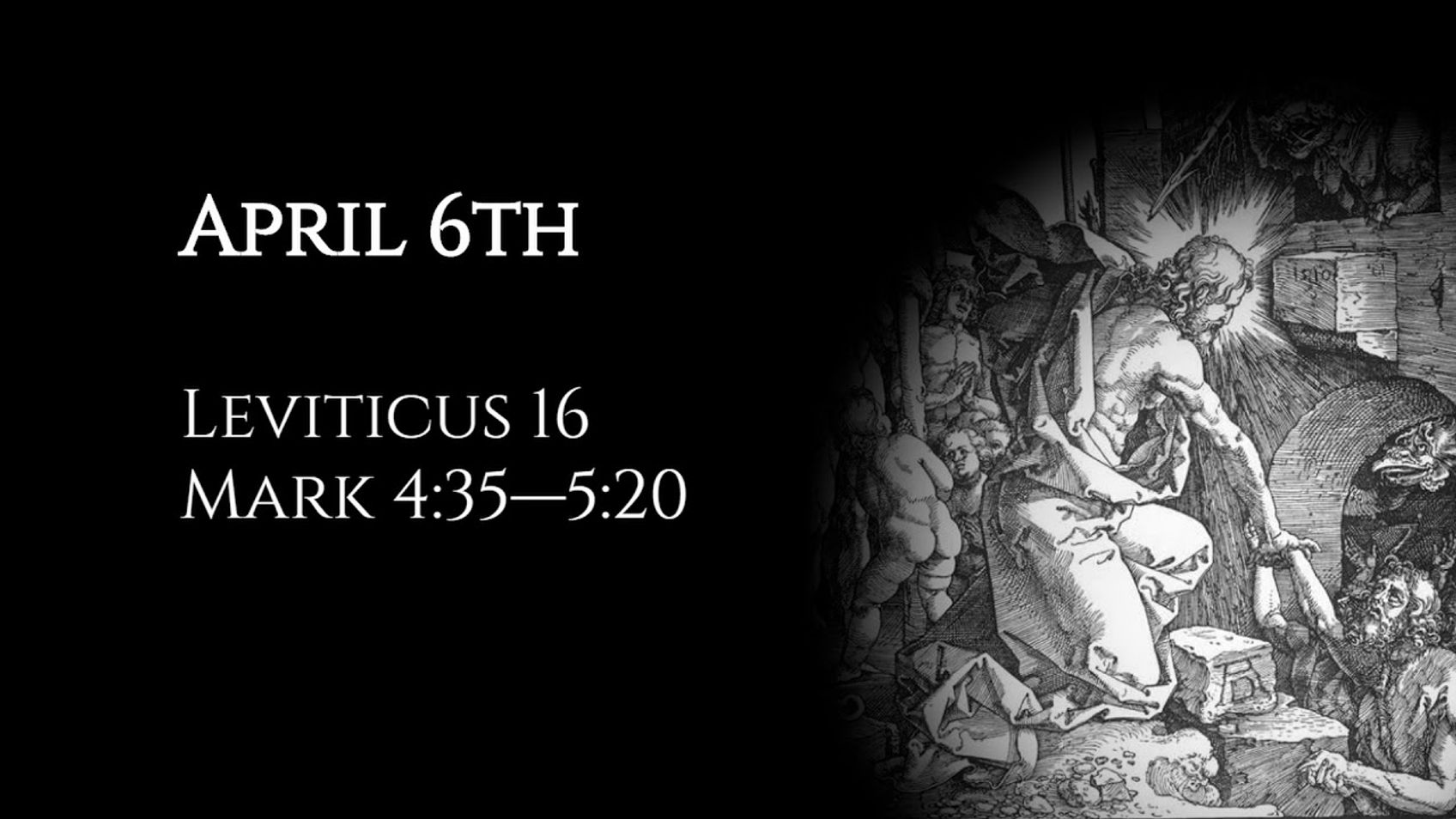April 6th: Leviticus 16 & Mark 4:35—5:20

The Day of Coverings. The Gerasene Demoniac.
[New Testament section begins at 18:34]
Some passages referenced:
Leviticus 25:8-10 (Year of Jubilee beginning on the Day of Atonement).
Isaiah 50:2, 51:9-10, Job 26:11-12, Psalm 18:15 (God’s power over the sea); Mark 3:27 (binding the Strong Man).
Reflections upon the readings from the ACNA Book of Common Prayer (http://bcp2019.anglicanchurch.net/).
If you have enjoyed my output, please tell your friends. If you are interested in supporting my videos and podcasts and my research more generally, please consider supporting my work on Patreon (https://www.patreon.com/zugzwanged), using my PayPal account (https://bit.ly/2RLaUcB), or by buying books for my research on Amazon (https://www.amazon.co.uk/hz/wishlist/ls/36WVSWCK4X33O?ref_=wl_share).
The audio of all of my videos is available on my Soundcloud account: https://soundcloud.com/alastairadversaria. You can also listen to the audio of these episodes on iTunes: https://itunes.apple.com/gb/podcast/alastairs-adversaria/id1416351035?mt=2.
More From Alastair Roberts


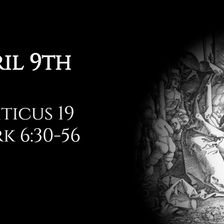
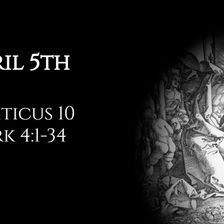
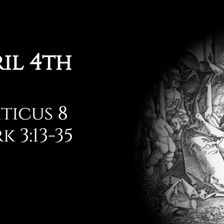
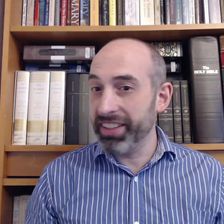
More on OpenTheo















